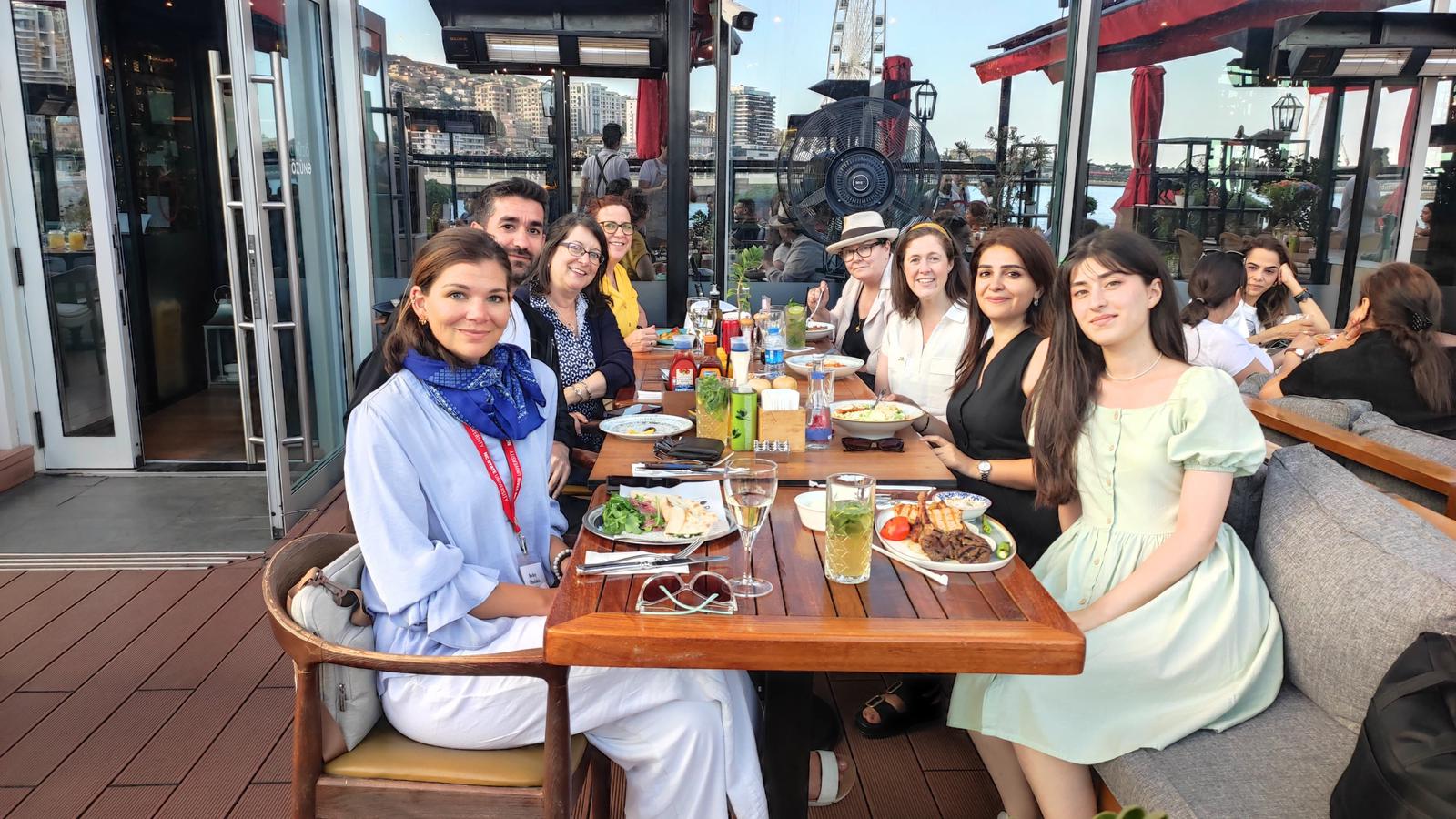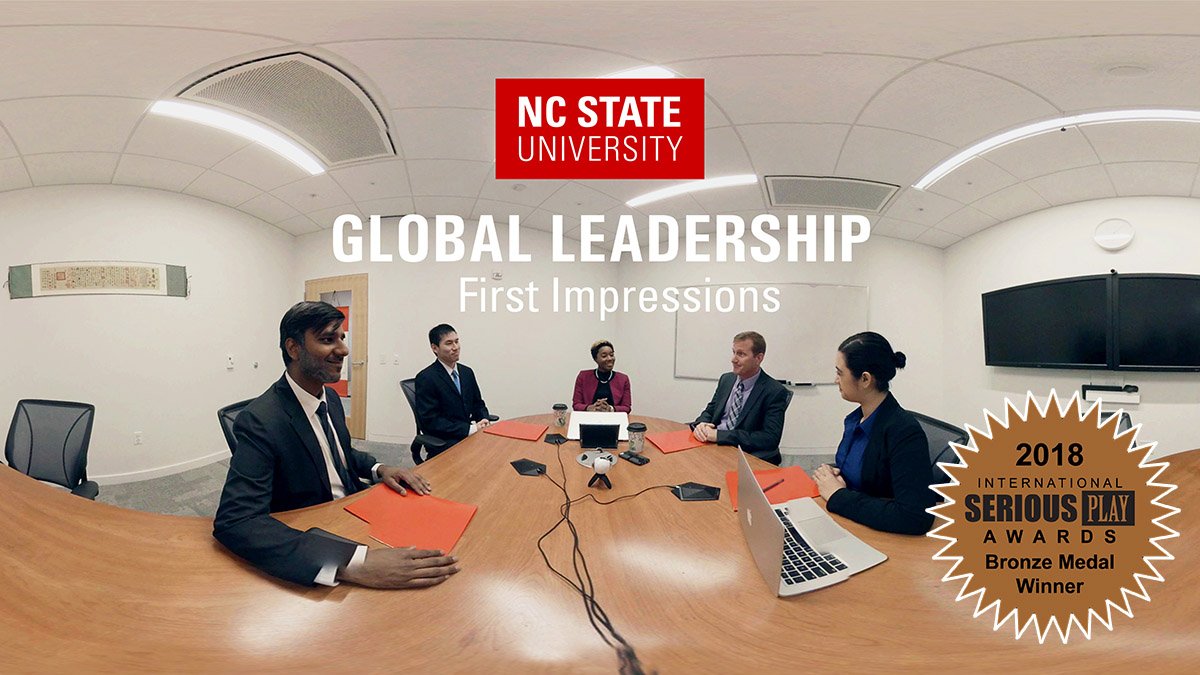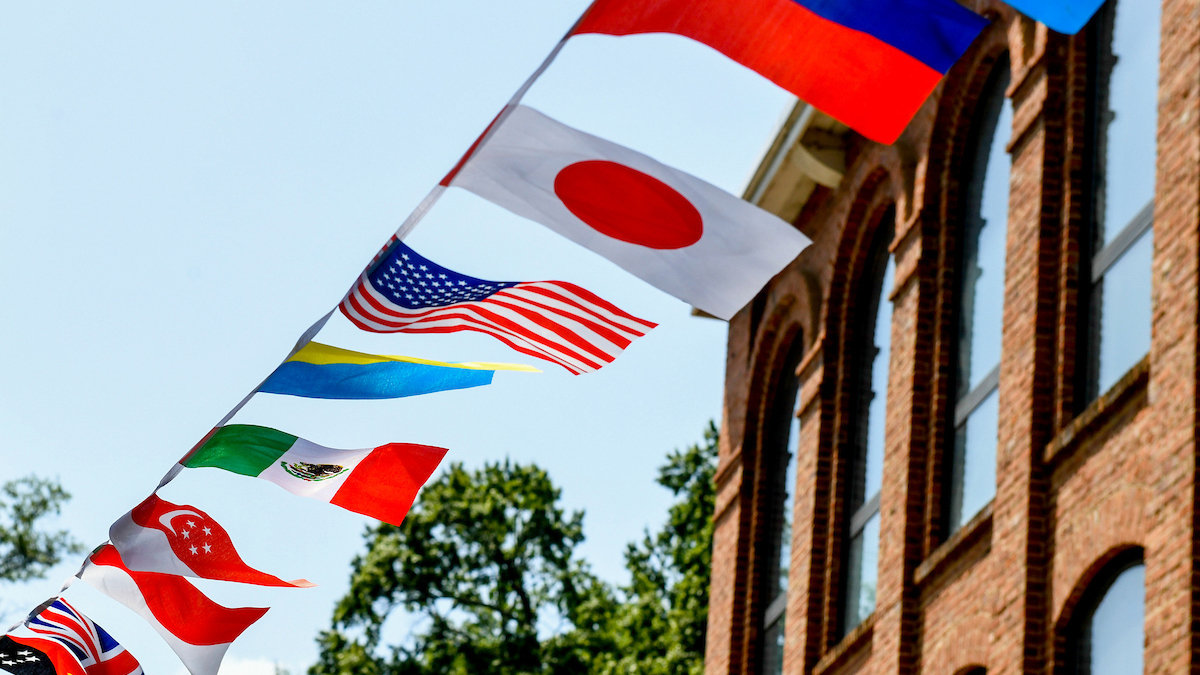
Global Skills Cross-Cultural Training
Enhance Communication and Leadership Skills
Our workforce is more global and mobile than ever before, which makes it even more important for professionals to develop their cross-cultural communication and leadership skills. The Global Training Initiative utilizes easy to apply frameworks to help participants learn how to successfully navigate cultural differences in professional and personal situations.
The GTI’s training team is certified by Berlitz as Cultural Orientations Approach (COA) Corporate Practitioners. Trainers are also certified to utilize and debrief individuals and teams on their Aperian GlobeSmart Profile and the Cultural Intelligence Center’s CQ Profile and Cultural Values Report. We have a range of standard and custom global skills training workshops for professionals and students. Our training center and offices are located on the NC State University campus in Raleigh, NC or staff members can travel to conduct trainings and workshops onsite.
Global Treks: Engagement Abroad

What are Global Skills?
Global skills refer to a set of abilities and competencies that are considered essential for individuals to thrive in today’s modern, interconnected world. These skills go beyond traditional academic knowledge and focus on equipping individuals with the tools they need to navigate the challenges of a globalized society, evolving job market and rapid technological advancements.
Some commonly recognized global skills include:
- Global awareness: Knowledge and understanding of global issues, interconnections, and the ability to engage in global citizenship.
- Cultural competence: The understanding and appreciation of various cultures, perspectives, and global issues, as well as the ability to collaborate respectfully across national and cultural boundaries.
- Communication and interpersonal skills: The ability to express ideas clearly and effectively, both verbally and in written form, and to engage in active listening.
- Collaboration and teamwork: The capacity to work effectively with various groups of people, leveraging collective knowledge and skills to achieve common goals.
- Critical thinking and problem-solving: The ability to analyze information, evaluate situations, and generate creative solutions to complex problems.
- Adaptability and resilience: The capacity to embrace change, be flexible, and adjust to new circumstances and challenges.
- Creativity and innovation: The ability to think creatively, generate new ideas, and apply imaginative approaches to problem-solving and decision-making.
- Emotional intelligence: The ability to recognize and manage one’s own emotions and empathize with others, fostering effective relationships and interpersonal connections.
- Digital literacy: Proficiency in using digital technologies, including information search and evaluation, digital communication, and basic programming skills.
- Lifelong learning: The motivation and ability to continuously learn, acquire new knowledge and skills, and adapt to evolving circumstances.
These skills are considered crucial for success in various domains to navigate an increasingly complex and interconnected world.
“Better understanding your own and others’ cultural preferences can make for a more harmonious working/living environment. Truly, anyone can benefit from the workshop series, especially those who work in leadership positions.”
– Kasey Harris, Global Skills Certificate Recipient
Training Options
The GTI training team often presents shorter, one-time workshops that introduce the concepts and foundational knowledge needed for participants to begin their journey toward greater cultural competence. We also have longer format training and workshops for groups who want a deeper dive into understanding and leveraging cultural differences and similarities.
Culture-specific Workshops
Training with a targeted audience or cultures in mind.
(ex. Bridging Cultural Gaps between the U.S. and China)
Team Building Workshops
Training that utilizes assessment profiles to identify strengths, challenges and strategies to leverage cultural differences and bridge gaps.
Coaching and Leadership Training
Assessment profiles and tools are employed to help individuals develop their communication and leadership skills.

